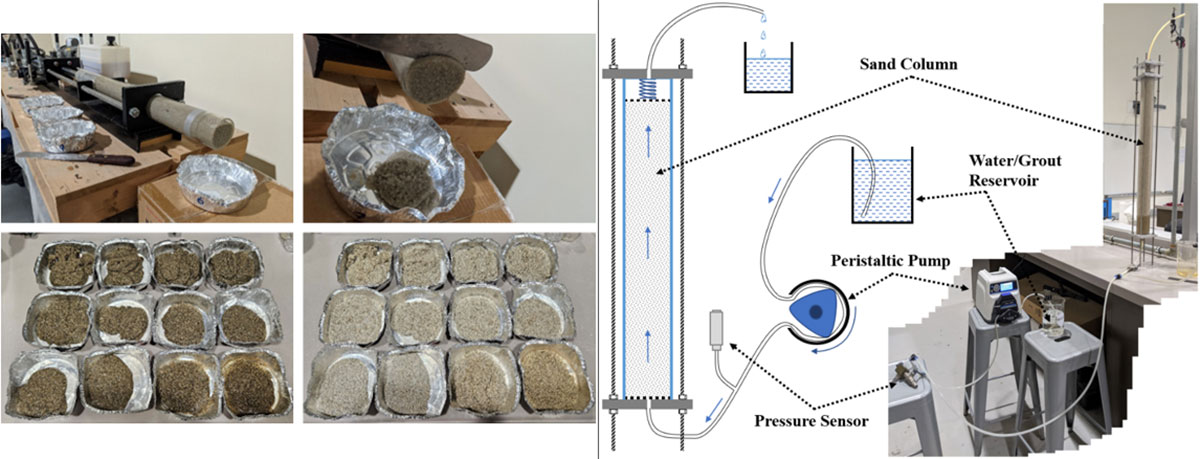Mixing between bentonite grout and pore water during grout propagation
Project Details
- Student(s): Marilyne El Azzi
- Advisor(s): Dr. Grace Abou-Jaoude
- Department: Civil
- Academic Year(s): 2024-2025
Abstract
Bentonite-water grouts are used as low cost, environmentally friendly materials for permeation grouting. Permeation grouting consists of injecting a grout into the pores of a soil body to improve its engineering properties. The quality of the improved soil is controlled by the value and uniformity of bentonite concentration within its pores. In the context of grout uniformity, most studies in the literature focused on the effect of filtration on bentonite grout penetration; however, a very limited number of studies touched on the effect of intermixing between the advancing grout and the existing pore water on grout dilution. This study investigates experimentally the grout dilution zone caused by grout-water intermixing. The effects of soil saturation, grout injection rate, grout’s water-to-bentonite ratio, and pore size distribution of the sand are presented. The experimental results show that out of these factors, only pore size distribution affected the shape of the mixing zone. Also, the results show that grout dilution increases the grouted distance by up to 20% and reduces the bentonite concentration within a considerable portion of the grouted area to about 80% of that of the injected grout. The wider the pore size distribution the wider the mixing zone, where bentonite concentration transitions between zero and that of the injected grout. Appropriate consideration of this phenomena is necessary when analyzing experimental lab data and when assessing grout coverage and uniformity in practice.
